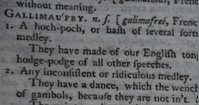YouTube, Facebook, and the responsibilities of intermediary gatekeepers
 In my previous post, I argued that, as a matter of principle, the controversial American anti-Islamic video should not be censored. The most obvious form of censorship comes from government action, such as legislation banning speech, but that does not arise in this case. Less obvious, but no less insidious, was the White House request to Google to re-consider whether the video breached YouTube rules. This was not a formal ban, and Google declined to take the video down in the US, but it did block access to it in in Egypt and Libya. This raises two important questions about the structure of free speech. First, in the online world, where most of us access the internet through a range of intermediaries, government censorship does not necessarily need to target the disfavoured speech; it need only target the intermediaries. Very few US companies would feel able to decline a request like that from the White House, and Google are to be commended for standing firm in those circumstances. Second, these intermediaries now have a great deal of practical power over online expression – not only can they be co-opted by government as agents of state censorship, but they also have the capacity to act as censors in their own rights, as Google did in their unilateral action to block access in the Middle East.…
In my previous post, I argued that, as a matter of principle, the controversial American anti-Islamic video should not be censored. The most obvious form of censorship comes from government action, such as legislation banning speech, but that does not arise in this case. Less obvious, but no less insidious, was the White House request to Google to re-consider whether the video breached YouTube rules. This was not a formal ban, and Google declined to take the video down in the US, but it did block access to it in in Egypt and Libya. This raises two important questions about the structure of free speech. First, in the online world, where most of us access the internet through a range of intermediaries, government censorship does not necessarily need to target the disfavoured speech; it need only target the intermediaries. Very few US companies would feel able to decline a request like that from the White House, and Google are to be commended for standing firm in those circumstances. Second, these intermediaries now have a great deal of practical power over online expression – not only can they be co-opted by government as agents of state censorship, but they also have the capacity to act as censors in their own rights, as Google did in their unilateral action to block access in the Middle East.…


